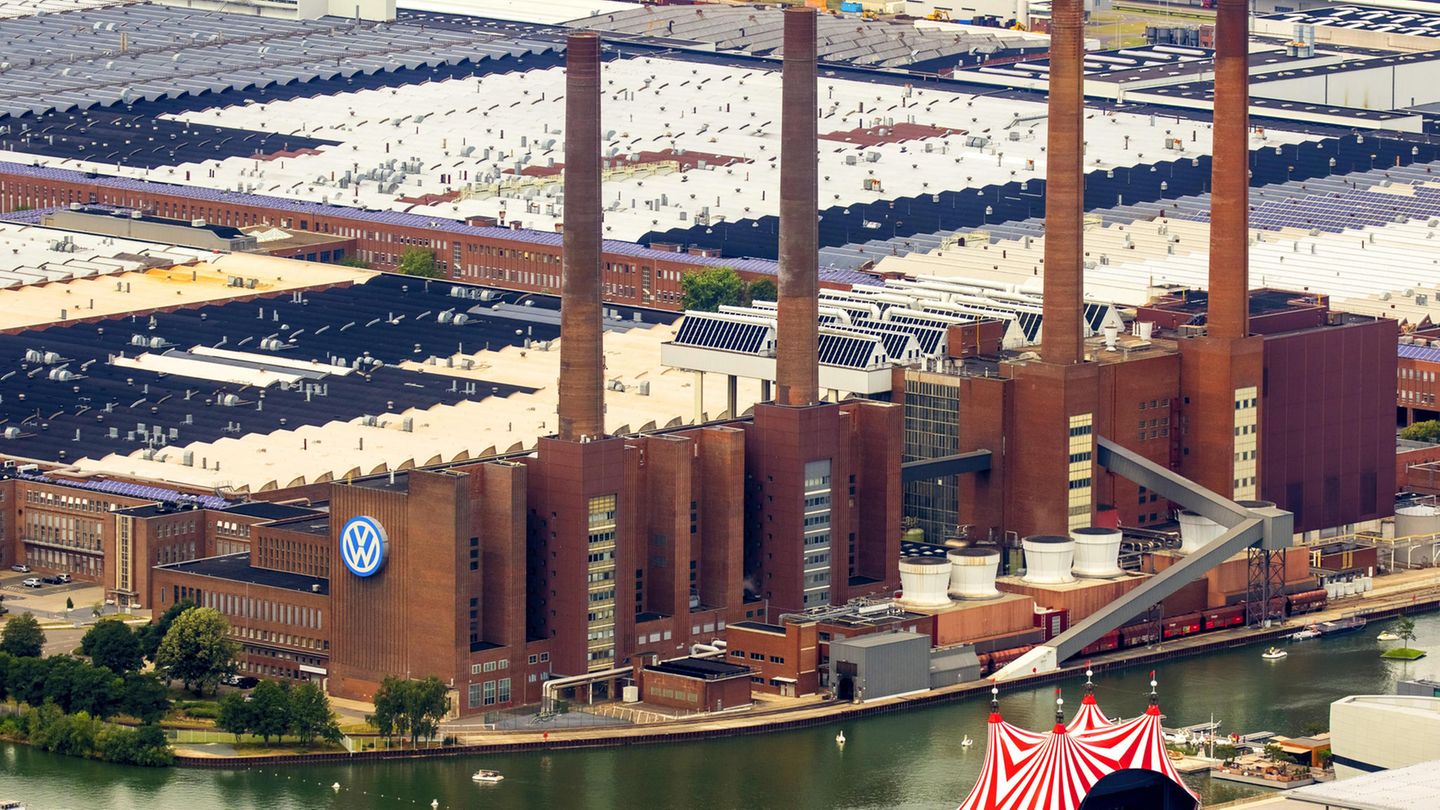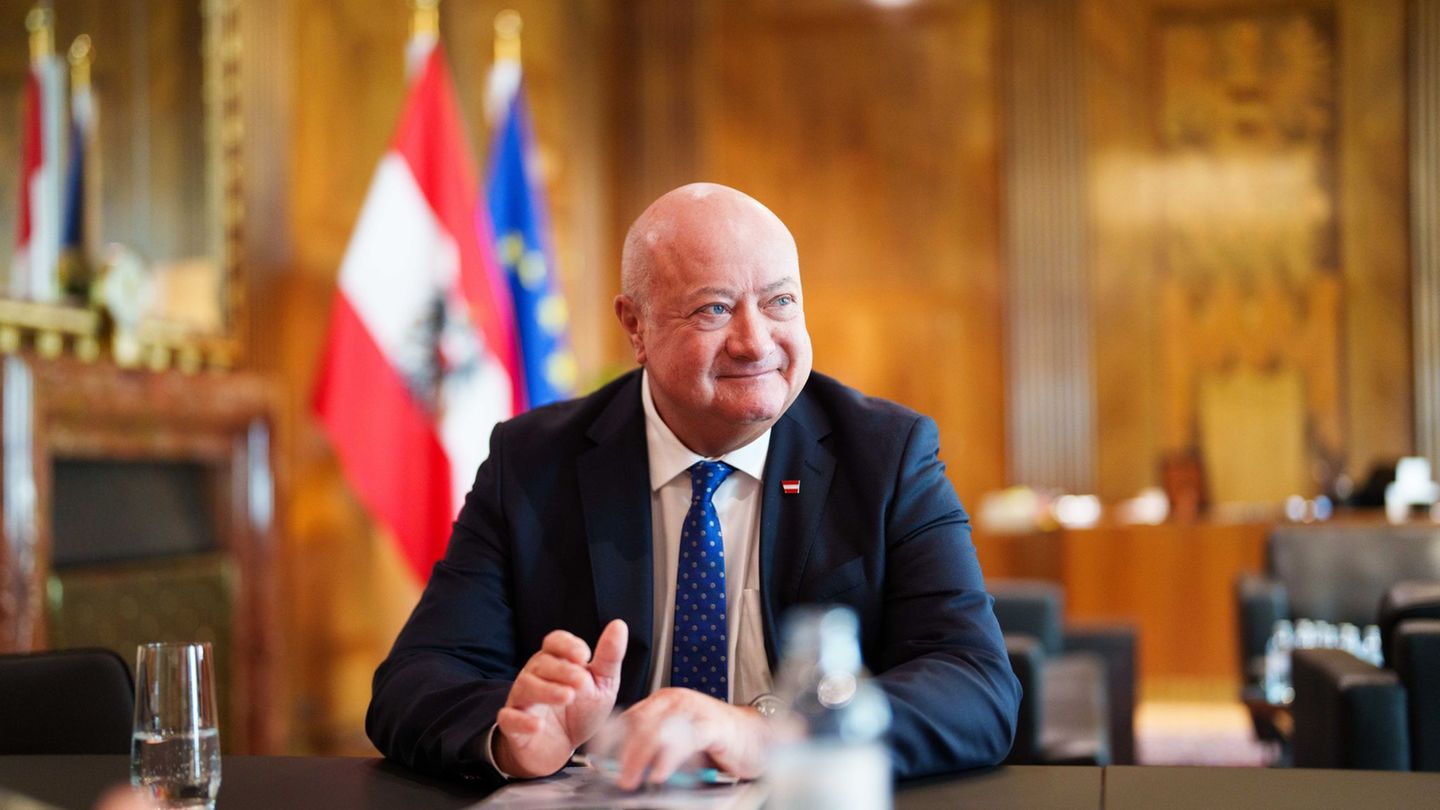Group in crisis
Works council: VW wants to close at least three plants
Copy the current link
For weeks, Volkswagen and the VW works council have been wrestling with possible plant closures and layoffs. According to the works council, concrete plans are now on the table.
According to the works council in Germany, Volkswagen wants to close several plants and cut tens of thousands of jobs. “The board wants to close at least three VW plants in Germany,” said group works council boss Daniela Cavallo at an information event for the workforce in Wolfsburg. All remaining locations should also shrink, she added. The company has now informed employees about these plans.
According to the works council, the plant in Osnabrück, which recently lost a hoped-for follow-up order from Porsche, is considered particularly at risk. The board is also planning operational layoffs, said Cavallo. According to the works council, there is a risk of tens of thousands of jobs being lost. Entire departments should be closed or relocated abroad.
VW works council: No plant is safe
“All German VW plants are affected by these plans. None are safe!” said Cavallo. The board is serious about its plans. “This is the plan of the largest German industrial group to start the sell-off in its home country of Germany. It is the firm intention to let the production regions bleed dry. And it is the clear intention to send tens of thousands of Volkswagen employees into mass unemployment.” She does not provide any further details.
VW employs around 120,000 people in Germany, around half of them in Wolfsburg. The VW brand operates a total of ten plants in Germany, six of which are in Lower Saxony, three in Saxony and one in Hesse. In September, VW canceled the job security that had been in place for more than 30 years. Redundancies for operational reasons would be possible from mid-2025.
The remaining employees were threatened with significant salary losses. The management is demanding a permanent ten percent reduction in monthly wages, two zero rounds in 2025 and 2026 and the end of allowances and bonuses, said Cavallo. VW and the union are currently negotiating a number of collective agreements. The next round of negotiations is scheduled for Wednesday. Among other things, IG Metall is demanding seven percent more wages for VW employees.
Possible factory closures: These are the ten VW plants in Germany
|
capital

Wolfsburg
The VW main plant on the Mittelland Canal is considered the largest connected car factory in the world. The facilities cover 6.5 square kilometers and around 62,000 employees work at the VW headquarters. The factory and the city of Wolfsburg were founded in 1938 for the production of the “KdF-Wagen”, which later became the VW Beetle. Today the Golf, Tiguan and Touran are built here. With an annual production of around 500,000 vehicles, the site is only half full. VW canceled the construction of another factory for electric cars in Wolfsburg in 2023.
© blickwinkel / H. Blossey / Picture Alliance
IG Metall does not want to accept VW’s latest plans to close plants and cut jobs. “These rabid plans by the board are in no way acceptable and a break with everything we have experienced in the company in recent decades,” said IG Metall district manager Thorsten Gröger.
“This is a deep stab in the heart of the hard-working VW workforce!” said Gröger. “We expect that instead of clear-cutting fantasies, Volkswagen and its board of directors will outline viable future concepts at the negotiating table, where employers have so far presented little more than empty phrases.”
On Wednesday, the company and the IG Metall union will meet for their second round of negotiations on the VW company collective bargaining agreement. In the first round in September, VW rejected IG Metall’s demands for a seven percent increase and instead pushed for savings. VW had not yet provided any further information on this. According to Cavallo, VW is now demanding a ten percent wage cut and zero pay in the next two years. The “Handelsblatt” had previously reported on this. VW announced at the beginning of September that it would no longer rule out plant closures and operational layoffs.
AFP · DPA · Reuters
rw
Source: Stern




